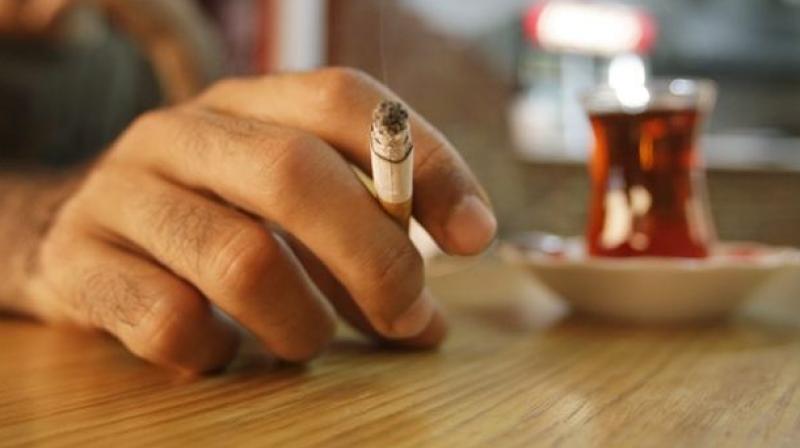Kids anxiety linked to fathers

Vijayawada: Children of smokers show more anxiety than children of non-smokers and the anxiety levels were more observed in the female population than males. A research carried out by a group of dental surgeons has observed that the early detection of factors leading to anxiety were known during recording case history, it can help in the early management of anxiety.
The research paper was published in European Journal of Dentistry. The study has observed that salivary cortisol levels were found higher in the children of smokers than the children of non-smokers indicating higher anxiety levels in children of smokers than children of nonsmokers. The present study was undertaken to evaluate salivary cortisol levels in children of smokers and non-smokers and thereby establishing the relationship between cortisol levels in response to anxiety in children based on their father’s habit of smoking. The study population aged between 8 and 10 years includes two groups, in around Eluru of West Godavari district. Group 1 is comprised 20 children of cigarette smokers and Group 2 is comprised 20 children of non-smokers.
The passive drooling technique was used to collect unstimulated saliva from the children using a sterile container. Salivary cortisol levels were evaluated using Enzyme-linked Immunosorbent Assay method. The obtained data were subjected to statistical analysis using SPSS software and paired t-test. Higher mean salivary cortisol levels were found in children of smokers compared to children of nonsmokers and the difference between them was significant statistically.
Higher salivary cortisol levels were found in females compared to males and the result was significant statistically, according to Dr M. Ghanashyam Prasad, HoD-Pedodontics and Preventive Dentistry, St Josesph’s Dental College, Eluru. Dr A. Naga Radha-Krishna and DR S. Pavani Reddy have also participated in this research. This study has proved that the smoking habit of the father has a negative influence on the anxiety levels of their children. The study was undertaken on children attending the out-patient Depar-tment of Pedodontics and Preventive Dentistry, St Joseph Dental College to assess their salivary cortisol levels.
History was taken from 90 children regarding the smoking habit of their father. Children with a known history of their father’s smoking habit, children with psychological disorders, and children with compromised medical health were considered for this study. Forty healthy subjects of the age group 8–10 years were selected in the study and were divided into two groups with equal distribution of males and females per group based on father’s smoking habit. Group 1 comprised 20 children of cigarette smokers with a smoking history of at least six years, and Group 2 comprised 20 children of non-smokers.

